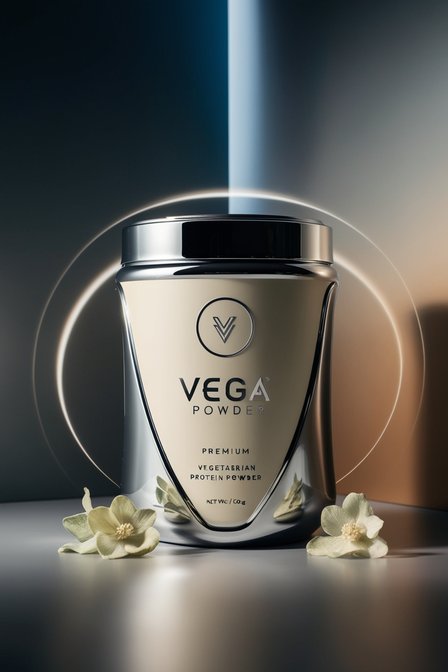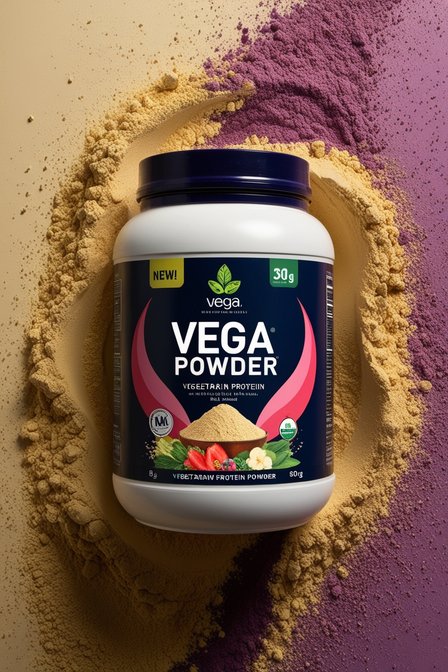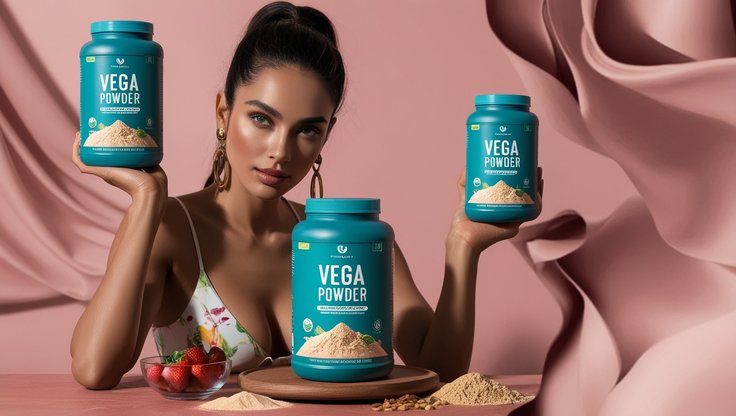Vegan Gelatin Substitute: A Comprehensive Guide
As the demand for plant-based diets and products continues to rise, the need for vegan alternatives to traditional ingredients has become more prominent. One such ingredient is gelatin, a protein derived from animal collagen, typically found in products like gummies, marshmallows, and certain desserts. For those adhering to a vegan lifestyle, finding suitable substitutes is essential to maintain their dietary preferences while still enjoying a variety of foods. This guide delves into vegan gelatin substitutes, exploring their sources, applications, and benefits.
Understanding Gelatin and Its Traditional Uses
Gelatin is a translucent, colorless substance obtained from the collagen found in animal bones, skin, and connective tissues. It is used primarily as a gelling agent, thickener, or stabilizer in various culinary applications. In recipes, gelatin helps to create a firm texture and can be found in many products, including jellies, marshmallows, and some dairy products. However, the reliance on animal products for gelatin has led to the development of vegan alternatives that cater to those who abstain from animal-derived ingredients.
The Need for Vegan Gelatin Substitutes
The quest for vegan gelatin substitutes arises from the desire to align with ethical, environmental, and health-conscious values. Traditional gelatin production involves animal cruelty and environmental concerns, making vegan alternatives a more appealing choice for many individuals. Additionally, vegan substitutes cater to those with dietary restrictions such as allergies or intolerances to animal-based products.
Types of Vegan Gelatin Substitutes
Several plant-based alternatives have been developed to replace gelatin, each offering unique properties and benefits. Agar-agar, carrageenan, and pectin are among the most popular options, and understanding their characteristics can help in selecting the right substitute for various recipes.
Agar-Agar: The Versatile Vegan Gelling Agent
Agar-agar, often simply called agar, is derived from red algae and has been used for centuries in Asian cuisines. It is a powerful gelling agent that sets at room temperature, unlike gelatin, which requires refrigeration. Agar-agar comes in various forms, including powder, flakes, and bars, and its gelling properties are ideal for creating a wide range of textures, from firm gels to softer, more delicate jellies.
One significant advantage of agar-agar is its ability to gel at higher temperatures compared to gelatin. It also holds its structure at warmer temperatures, making it suitable for recipes that are not intended to be chilled. The use of agar-agar can be particularly beneficial in vegan baking and confectionery, where a stable and reliable gelling agent is required.
Carrageenan: A Seaweed-Based Alternative
Carrageenan is another plant-based substitute derived from red seaweed. It is commonly used in the food industry as a thickening and stabilizing agent and is found in a variety of products such as dairy-free milk, ice cream, and processed foods. Carrageenan is available in several forms, including kappa, iota, and lambda, each with different gelling and thickening properties.
Kappa carrageenan is often used for its strong gelling ability, making it ideal for creating firm gels and textures in desserts and confections. Iota carrageenan, on the other hand, produces softer gels and is suitable for recipes that require a more delicate consistency. Lambda carrageenan does not form gels but is used as a thickener and stabilizer. Understanding the different types of carrageenan and their applications can help in achieving the desired texture and consistency in vegan recipes.
Pectin: A Natural Fruit-Based Gelling Agent
Pectin is a natural carbohydrate found in the cell walls of fruits and vegetables. It is widely used in the food industry to create jams, jellies, and preserves due to its gelling properties. Pectin is available in various forms, including powder and liquid, and can be categorized into high-methoxyl and low-methoxyl pectin, each with different gelling requirements.
High-methoxyl pectin requires the presence of sugar and acid to form gels, making it ideal for sweet preserves and jams. Low-methoxyl pectin, on the other hand, can gel in the presence of calcium, making it suitable for low-sugar or no-sugar recipes. The versatility of pectin in different types of fruit-based products highlights its utility as a vegan gelatin substitute.
Choosing the Right Vegan Gelatin Substitute
Selecting the appropriate vegan gelatin substitute depends on several factors, including the specific recipe, desired texture, and the nature of the product being prepared. Each alternative has its own set of advantages and limitations, and understanding these can help in making an informed decision.
For recipes that require a firm, stable gel, agar-agar is often the preferred choice due to its strong gelling properties and high-temperature stability. Carrageenan is suitable for applications that require different textures, from firm gels to softer, more delicate consistencies, depending on the type used. Pectin is ideal for fruit-based products and preserves, offering natural gelling properties that work well in a variety of sweet applications.
Applications of Vegan Gelatin Substitutes
Vegan gelatin substitutes can be used in a wide range of recipes and culinary applications. From desserts and confections to savory dishes and sauces, these alternatives offer flexibility and versatility in vegan cooking.
In baking, agar-agar and carrageenan can be used to create gelatinous fillings and toppings for cakes, pastries, and pies. Agar-agar is particularly useful in creating firm, sliceable gels for items like fruit jellies and tarts. Carrageenan, with its various types, allows for experimentation with different textures and consistencies in baked goods.
In the realm of confectionery, agar-agar is often used to make vegan gummies and marshmallows, providing a chewy, satisfying texture similar to traditional gelatin-based products. Carrageenan also finds use in candies and sweets, offering options for both firm and soft textures.
For savory dishes, vegan gelatin substitutes can be used to thicken and stabilize sauces, soups, and stews. Agar-agar and carrageenan can be incorporated into these recipes to achieve the desired consistency and texture. Pectin, with its thickening properties, can also be used in certain savory applications, particularly when working with fruit-based sauces or reductions.
Benefits of Vegan Gelatin Substitutes
The benefits of using vegan gelatin substitutes extend beyond dietary preferences and ethical considerations. These alternatives often offer additional advantages, such as:
Challenges and Considerations
While vegan gelatin substitutes offer many benefits, there are also some challenges and considerations to keep in mind. For example, the gelling properties of agar-agar and carrageenan can vary based on factors such as concentration, temperature, and recipe composition. It may require some experimentation to achieve the desired results, especially when adapting traditional recipes to use vegan alternatives.
Additionally, the flavor and texture of vegan gelatin substitutes may differ from traditional gelatin, and adjustments may be needed to accommodate these differences. For instance, agar-agar has a slightly different mouthfeel compared to gelatin, and some recipes may require modifications to achieve the desired consistency and taste.
Conclusion
Vegan gelatin substitutes offer valuable alternatives for those seeking to avoid animal-derived ingredients while still enjoying a wide range of culinary delights. Agar-agar, carrageenan, and pectin each provide unique properties and benefits, making them suitable for various applications in vegan cooking and baking. By understanding the characteristics of these substitutes and their potential uses, individuals can make informed choices and successfully incorporate plant-based gelling agents into their recipes.
As the demand for vegan products continues to grow, the availability and variety of vegan gelatin substitutes are likely to expand, offering even more options for those looking to embrace a plant-based lifestyle. Whether for desserts, confections, or savory dishes, these alternatives provide a way to maintain dietary preferences while exploring new and exciting culinary possibilities.
As the demand for plant-based diets and products continues to rise, the need for vegan alternatives to traditional ingredients has become more prominent. One such ingredient is gelatin, a protein derived from animal collagen, typically found in products like gummies, marshmallows, and certain desserts. For those adhering to a vegan lifestyle, finding suitable substitutes is essential to maintain their dietary preferences while still enjoying a variety of foods. This guide delves into vegan gelatin substitutes, exploring their sources, applications, and benefits.
Understanding Gelatin and Its Traditional Uses
Gelatin is a translucent, colorless substance obtained from the collagen found in animal bones, skin, and connective tissues. It is used primarily as a gelling agent, thickener, or stabilizer in various culinary applications. In recipes, gelatin helps to create a firm texture and can be found in many products, including jellies, marshmallows, and some dairy products. However, the reliance on animal products for gelatin has led to the development of vegan alternatives that cater to those who abstain from animal-derived ingredients.
The Need for Vegan Gelatin Substitutes
The quest for vegan gelatin substitutes arises from the desire to align with ethical, environmental, and health-conscious values. Traditional gelatin production involves animal cruelty and environmental concerns, making vegan alternatives a more appealing choice for many individuals. Additionally, vegan substitutes cater to those with dietary restrictions such as allergies or intolerances to animal-based products.
Types of Vegan Gelatin Substitutes
Several plant-based alternatives have been developed to replace gelatin, each offering unique properties and benefits. Agar-agar, carrageenan, and pectin are among the most popular options, and understanding their characteristics can help in selecting the right substitute for various recipes.
Agar-Agar: The Versatile Vegan Gelling Agent
Agar-agar, often simply called agar, is derived from red algae and has been used for centuries in Asian cuisines. It is a powerful gelling agent that sets at room temperature, unlike gelatin, which requires refrigeration. Agar-agar comes in various forms, including powder, flakes, and bars, and its gelling properties are ideal for creating a wide range of textures, from firm gels to softer, more delicate jellies.
One significant advantage of agar-agar is its ability to gel at higher temperatures compared to gelatin. It also holds its structure at warmer temperatures, making it suitable for recipes that are not intended to be chilled. The use of agar-agar can be particularly beneficial in vegan baking and confectionery, where a stable and reliable gelling agent is required.
Carrageenan: A Seaweed-Based Alternative
Carrageenan is another plant-based substitute derived from red seaweed. It is commonly used in the food industry as a thickening and stabilizing agent and is found in a variety of products such as dairy-free milk, ice cream, and processed foods. Carrageenan is available in several forms, including kappa, iota, and lambda, each with different gelling and thickening properties.
Kappa carrageenan is often used for its strong gelling ability, making it ideal for creating firm gels and textures in desserts and confections. Iota carrageenan, on the other hand, produces softer gels and is suitable for recipes that require a more delicate consistency. Lambda carrageenan does not form gels but is used as a thickener and stabilizer. Understanding the different types of carrageenan and their applications can help in achieving the desired texture and consistency in vegan recipes.
Pectin: A Natural Fruit-Based Gelling Agent
Pectin is a natural carbohydrate found in the cell walls of fruits and vegetables. It is widely used in the food industry to create jams, jellies, and preserves due to its gelling properties. Pectin is available in various forms, including powder and liquid, and can be categorized into high-methoxyl and low-methoxyl pectin, each with different gelling requirements.
High-methoxyl pectin requires the presence of sugar and acid to form gels, making it ideal for sweet preserves and jams. Low-methoxyl pectin, on the other hand, can gel in the presence of calcium, making it suitable for low-sugar or no-sugar recipes. The versatility of pectin in different types of fruit-based products highlights its utility as a vegan gelatin substitute.
Choosing the Right Vegan Gelatin Substitute
Selecting the appropriate vegan gelatin substitute depends on several factors, including the specific recipe, desired texture, and the nature of the product being prepared. Each alternative has its own set of advantages and limitations, and understanding these can help in making an informed decision.
For recipes that require a firm, stable gel, agar-agar is often the preferred choice due to its strong gelling properties and high-temperature stability. Carrageenan is suitable for applications that require different textures, from firm gels to softer, more delicate consistencies, depending on the type used. Pectin is ideal for fruit-based products and preserves, offering natural gelling properties that work well in a variety of sweet applications.
Applications of Vegan Gelatin Substitutes
Vegan gelatin substitutes can be used in a wide range of recipes and culinary applications. From desserts and confections to savory dishes and sauces, these alternatives offer flexibility and versatility in vegan cooking.
In baking, agar-agar and carrageenan can be used to create gelatinous fillings and toppings for cakes, pastries, and pies. Agar-agar is particularly useful in creating firm, sliceable gels for items like fruit jellies and tarts. Carrageenan, with its various types, allows for experimentation with different textures and consistencies in baked goods.
In the realm of confectionery, agar-agar is often used to make vegan gummies and marshmallows, providing a chewy, satisfying texture similar to traditional gelatin-based products. Carrageenan also finds use in candies and sweets, offering options for both firm and soft textures.
For savory dishes, vegan gelatin substitutes can be used to thicken and stabilize sauces, soups, and stews. Agar-agar and carrageenan can be incorporated into these recipes to achieve the desired consistency and texture. Pectin, with its thickening properties, can also be used in certain savory applications, particularly when working with fruit-based sauces or reductions.
Benefits of Vegan Gelatin Substitutes
The benefits of using vegan gelatin substitutes extend beyond dietary preferences and ethical considerations. These alternatives often offer additional advantages, such as:
- Health Benefits: Many vegan gelatin substitutes, such as agar-agar and pectin, are rich in fiber and can contribute to overall digestive health. Pectin, for example, is known for its prebiotic properties and can support gut health.
- Versatility: Vegan substitutes like agar-agar and carrageenan offer a wide range of gelling and thickening properties, allowing for creative experimentation in the kitchen. Their versatility makes them suitable for various types of recipes and applications.
- Dietary Inclusivity: Vegan gelatin substitutes cater to individuals with dietary restrictions, such as vegans, vegetarians, and those with allergies to animal products. They provide inclusive options for those who wish to avoid animal-derived ingredients while still enjoying a diverse range of foods.
- Environmental Impact: By opting for plant-based substitutes, individuals contribute to reducing the environmental impact associated with animal agriculture and gelatin production. Vegan alternatives often have a lower carbon footprint and are more sustainable choices.
Challenges and Considerations
While vegan gelatin substitutes offer many benefits, there are also some challenges and considerations to keep in mind. For example, the gelling properties of agar-agar and carrageenan can vary based on factors such as concentration, temperature, and recipe composition. It may require some experimentation to achieve the desired results, especially when adapting traditional recipes to use vegan alternatives.
Additionally, the flavor and texture of vegan gelatin substitutes may differ from traditional gelatin, and adjustments may be needed to accommodate these differences. For instance, agar-agar has a slightly different mouthfeel compared to gelatin, and some recipes may require modifications to achieve the desired consistency and taste.
Conclusion
Vegan gelatin substitutes offer valuable alternatives for those seeking to avoid animal-derived ingredients while still enjoying a wide range of culinary delights. Agar-agar, carrageenan, and pectin each provide unique properties and benefits, making them suitable for various applications in vegan cooking and baking. By understanding the characteristics of these substitutes and their potential uses, individuals can make informed choices and successfully incorporate plant-based gelling agents into their recipes.
As the demand for vegan products continues to grow, the availability and variety of vegan gelatin substitutes are likely to expand, offering even more options for those looking to embrace a plant-based lifestyle. Whether for desserts, confections, or savory dishes, these alternatives provide a way to maintain dietary preferences while exploring new and exciting culinary possibilities.




